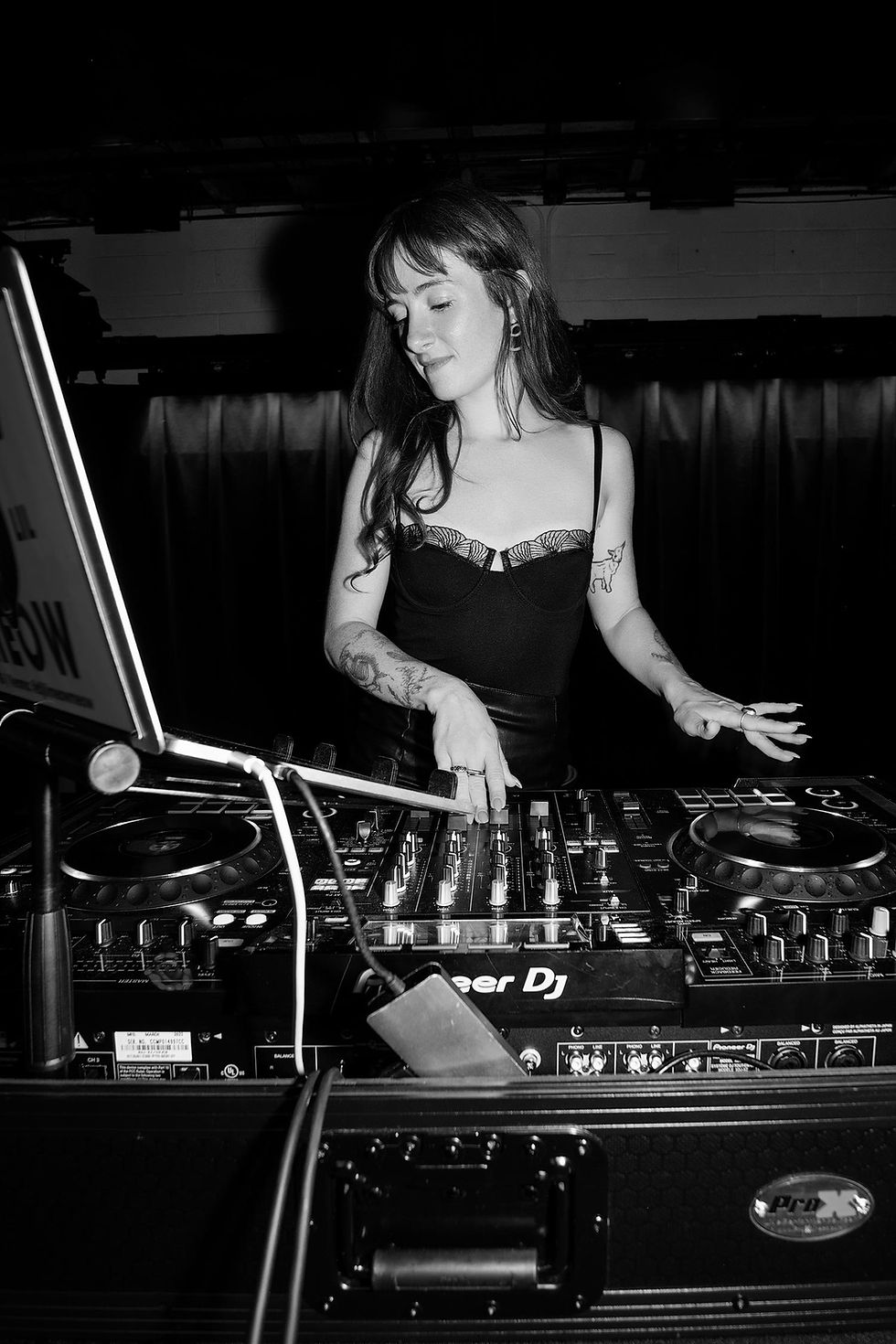a story about a woman i met, and maybe you should too
- JD Ellison and Company
- May 2, 2024
- 3 min read
Updated: Aug 20
Words by JD Ellison. Photography by Anthony Bellemare.

It started with an unorthodox—and possibly foolish—idea: writing this profile without interviewing her. Not out of laziness, mind you. I see alexandria monque ravenel (intentionally lowercase) almost every day. We talk often. If I wanted to ask her a question, I could. But I chose not to. Instead, I wanted to tell you about her as I’ve come to know her—not as a writer, but just as someone whose life she has touched.
So this isn’t a profile. It’s a story. About one time. Somewhere in the world. Where I met a woman who reminds me, and maybe you too, to be human.
I’ve known alexandria for a few years, but it feels like I’ve known her forever. Perhaps even before then. In fact, I am convinced, in a way that defies reason, that she is God. Not in a fanatical way, but in the way that we are all of each other, of a greater body, and of the greatest Creator. And in that, if I were assigning roles in this cosmic organism, alexandria would be the heart. And I, maybe, the left pinky toe.
When she enters a room, the air seems to shift, becoming heavier and lighter all at once, as though carrying the weight of every story she’s lived. She settles into spaces, her energy sinking into the cracks of the walls and the floorboards, leaving no corner untouched. She moves like memory, familiar yet elusive. Her voice resonates, wrapping itself around you like a favorite song you forgot you loved. Of course, she’s kind, brilliant, and welcoming. But there’s something else—something ineffable, a quiet knowing that suggests she’s been here before.
Her family hails from Charleston, South Carolina, but she grew up in Queens, New York. She carries both places with her—the gentle hospitality of the South and the relentless spirit of New York. She’s a mother of two, and you see that in the way she moves through the world. She started a Montessori school to educate her own children and in the end, she educated hundreds of children for almost two decades. I’ve sat in Noir Collective - the art gallery and boutique she co-founded with her youngest child - when her former students have walked in, gushing over her like she’s still their favorite teacher because she is. And honestly, I understand why.

To call alexandria a community leader feels reductive. She is a weaver—of people, of ideas, of intentions. As co-founder of Noir Collective AVL, she’s helped create a space that feels more like a heartbeat than a business. Situated on "The Block," the historically Black business district in Asheville, the collective is an art gallery, boutique, and cultural haven that amplifies Black voices and entrepreneurship. But Noir is just one thread in the tapestry. alexandria is also the co-creator of The People’s Place, a vision for a communal hub that will be a love letter to Black Asheville—past, present, and future—designed to educate, empower, and celebrate. Her work extends further still, as she has been a steady voice at the historic YMI Cultural Center, one of the oldest Black cultural centers in the United States. In the wake of Helene, alexandria was at the forefront of relief efforts, ensuring resources reached those most marginalized.
To watch alexandria with others is to witness the art of presence. She sees you. And in that gaze, is an unspoken understanding that you matter and that you are not alone. To know her is to witness the rare alchemy of intellect, heart, and action. She embodies a way of being that feels like a compass, constantly pointing toward what’s right and necessary. Brick by brick, moment by moment, she is actively building justice, community, and liberation.
And yet, she carries none of it with pretense. alexandria doesn’t demand to be seen; she simply is. She moves through the world like water—gentle, unyielding, inevitable. You don’t notice the work she’s doing until you look back and realize she’s reshaped the landscape entirely.
In another life, perhaps she was a healer, or maybe a storyteller. Or perhaps she was simply herself, always, in every iteration of existence. To meet her is to remember something you didn’t know you’d forgotten. To be human.
And so, here we are, not in a story about her but in a story that observes her. It's a point of privilege. Both to know her and to choose to see her in this way. The story has told you nothing and everything and for that, I agree.
If you ever meet alexandria monque ravenel, you’ll know. You’ll feel it. Because she’s not just a person. She’s a place. A sanctuary. A reminder of what it means to be human.










Comments